
Got stress? If your answer is yes, then your body needs extra support!
Research shows stress increases the levels of micronutrients used by your body. Micronutrients, including vitamins and minerals, are essential for optimal physical and mental function, and micronutrient deficiencies can cause many health concerns. Research studies suggest stress often leads to micronutrient depletion, which can then exacerbate the symptoms of stress and cause further dysfunction and disease throughout your body.
A stressor can be physical or emotional, acute or chronic, real or perceived, and the impact of a stressor on individuals can vary widely. The same stressor that causes negligible effects in one individual may result in life-threatening impacts in others.
From a biological standpoint, the stress response comprises a series of reactions involving the hypothalamic–pituitary–adrenal (HPA) axis. When a stressor is experienced, several hormones are released to respond to the stressor, including adrenaline, noradrenaline, and cortisol.
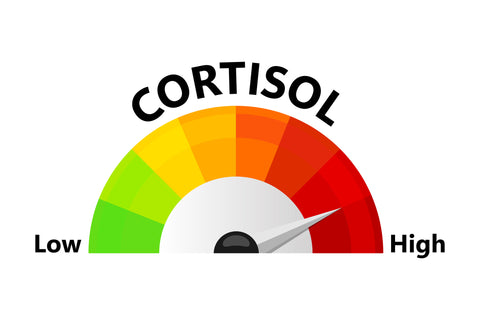
While the stress response is essential for life, excessive acute or chronic activation of the stress response is associated with health concerns. Acute stress is associated with asthma, eczema, urticaria, migraines, headaches, blood pressure issues, pain conditions, gastrointestinal symptoms (stomach pain, indigestion, diarrhea, and constipation), and mental health disturbances, including panic attacks and psychotic episodes.1
Chronic stress is also associated with numerous health concerns, including anxiety, depression, Alzheimer's disease, cardiovascular diseases, metabolic disorders (obesity, metabolic syndrome, and type 2 diabetes), insomnia, restless leg syndrome, and several cancers.1
The good news is there are natural supplements that can support your body during stress and balance your stress response.

Magnesium for Stress Relief
Both stress and magnesium deficiency are common health concerns in modern times. Numerous studies have investigated the effects of magnesium on the physiological stress response, and the research shows magnesium plays a key role in the regulation and neurotransmission of a healthy stress response. Low magnesium status correlates with suffering from psychological stress and the associated symptoms.2
Evidence also suggests that exposure to stressors is associated with lower blood magnesium concentrations and increased urinary excretion of magnesium.1
Since magnesium is used and excreted during a healthy stress response, repeated or chronic exposure to stressors could potentially exacerbate the symptoms of stress if the magnesium is not replenished daily.2
An abundance of clinical studies confirm magnesium supplementation supports stress management. Since the severity of stress and other mental health concerns can be somewhat difficult to measure, the Depression Anxiety Stress Scale (DASS) was developed. It is a validated psychometric measure of stress.3
In one clinical study, individuals with fibromyalgia and mild to moderate stress supplemented with 50 mg of magnesium twice daily for one month. Their scores on the DASS significantly decreased from 22.1 ± 2.8 to 12.3 ± 7.0, while there was no beneficial change in the placebo group (21.9 ± 11.9 to 22.9 ± 11.9).4

Pouteau et al. studied the beneficial effect of magnesium alone and magnesium plus vitamin B6 supplementation on subjects between 18 and 50 years of age with moderate to extremely severe stress per the DASS assessment. The dose of magnesium administered in the study was 300 mg per day.3
The study results demonstrated eight weeks of daily magnesium supplementation significantly alleviated stress. Both the magnesium plus vitamin B6 and magnesium supplementation alone reduced stress by approximately 40% in the study subjects overall. In those with severe or extremely severe stress, though, magnesium combined with vitamin B6 provided a 24% greater reduction in stress than magnesium alone.3
This study highlights supplementation with a combination of supportive nutrients could provide powerful, synergistic benefits. In addition to magnesium, research shows supplementation with an adaptogenic herb, such as Ashwagandha, plus a vitamin B-Complex are top-notch options to support stress management.

Vitamin B-Complex for Stress Relief
As mentioned above, combining vitamin B6 with magnesium may provide superior stress management support compared to magnesium alone. Research also shows a deficiency of B vitamins, especially vitamins B1, B6, B9, and B12, is associated with mood disorders and increased stress.5
A study that compared dietary intake of B vitamins with mental health concerns found that a higher dietary intake of dietary B vitamins, including biotin and vitamin B6, was associated with a lower prevalence of stress symptoms.6
A randomized, placebo-controlled, double-blind, parallel groups trial assessed the effects of a B-complex vitamin and mineral supplement in 215 healthy 30 to 55-year-old males. Only 33 days of supplementation with the B-complex significantly reduced subjective stress ratings in the study subjects.7
A recent systematic review and meta-analysis of randomized controlled trials revealed evidence that suggests an overall positive effect of B vitamin supplementation for stress management. Medical research continues to demonstrate supplementation with a B-complex reduces stress levels in adults.8
You might be wondering how B vitamins reduce stress levels. Well, B vitamins are required daily for the synthesis of nucleic acids, coenzymes, steroid hormones, fatty acids, amino acids, neurotransmitters, glutathione, and more. Together, the efficient production of these substances by your body supports your optimal health every day.9

The Adaptogen Ashwagandha (Withania somnifera) for Stress Relief
Ashwagandha (Withania somnifera) is an adaptogenic medicinal herb with an abundance of bioactive phytonutrients that have many beneficial effects throughout the body. The various phytonutrients in Ashwagandha are still being discovered, but the list includes withananine, somniferine, scopoletin, somniferiene, somnine, tropine, tropanol, somniferinine, pseudo-withanine, pseudotropine, choline, cuscohygrine, isopelletierine, withasomidienone, withaferin A, withanolides A-Y, withanone, withadomniferin A, withasomniferols A-C, and bioflavonoids, including quercetin and its glycosidic derivative, 3-O-rutinoside-7-O-glucoside.10,11,12
Adaptogenic herbs improve your ability to adapt to change and cope with stress - physically, emotionally, and mentally. The latest definition of an adaptogen is “a class of metabolic regulators that enhances the body’s ability to adapt to environmental factors and avoid the damage they could imply.” Thus, by definition, adaptogenic herbs safely reduce the negative impacts of stress.10
Clinical research studies provide ample evidence Ashwagandha root extract supports stress relief. One single-center, prospective, double-blind, randomized, placebo-controlled trial included 64 participants with chronic stress. After only 60 days of supplementation with Ashwagandha, the study group that took the Ashwagandha root extract experienced a significant reduction in all stress assessments.
The Perceived Stress Scale (PSS) is a validated psychological scale for assessing the level of stress in one's life. A PSS score can range from 0 to 40, with a score of zero equating to the absence of stress. After only 60 days of treatment, there was a 44.0% reduction in perceived stress in the Ashwagandha group, compared to only a 5.5% reduction in baseline PSS scores in the placebo group.13

The GHQ-28 questionnaire is another validated assessment of overall stress. The total score for the questionnaire represents a measure of overall stress. The subjects in the study group that received the Ashwagandha reduced their total scores by approximately 72%, compared to the placebo group’s reduction of only 2%.
Results were similar for the DASS questionnaire. The study group that took Ashwagandha for 60 days reduced their score on the “Stress” item subset by 64.2%, while the score for the placebo group decreased by only 10.4%. These results are consistent with several other clinical studies on Ashwagandha.13
A randomized, double-blind, placebo-controlled study published in October 2023 also determined that 60 days of supplementation with an Ashwagandha root extract significantly reduced the PSS score when compared with a placebo.14
Furthermore, research confirms Ashwagandha root extract offers a glowing safety profile. A recent randomized, placebo-controlled clinical study with healthy individuals concluded Ashwagandha root extract is safe, well-tolerated, and does not cause serious adverse events. All physical, hematological, and biochemical parameters measured in the healthy male and female participants remained within normal range throughout the study.15

Moreover, research suggests combining nutrients, herbal extracts, and other nutraceuticals could offer powerful synergistic benefits beyond supplementation with only one. A clinical study by Harris et al. confirmed supplementation with a multivitamin, mineral, and herbal formulation significantly reduced overall stress.16
Supplementation with a combination of an adaptogen, magnesium, green tea, and B vitamins has even been shown to improve the stress response via brain imaging studies. After only 28 days of supplementation with the synergistic blend, the brain response to stressful (thermal) stimuli in chronically stressed individuals was effectively modulated.17
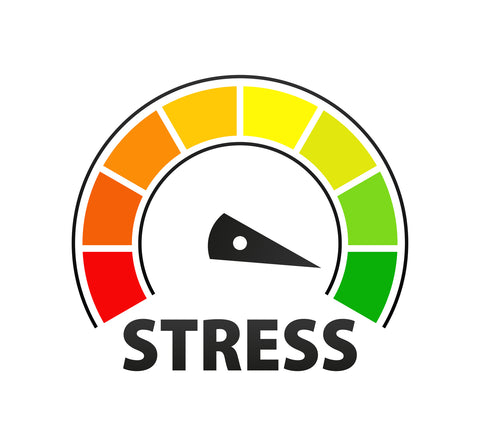
Manage Stress Naturally with the Best Evidence-Based Supplements
Research shows supplementation with the three natural supplements mentioned above – magnesium, B vitamins, and adaptogenic herbs - significantly reduces stress levels and may reduce the risk of developing stress-associated diseases. Stress has been identified as a promoter of multiple health concerns, including neurological conditions, hypertension, diabetes, obesity, etc., so stress can be a serious health issue.*
If you or your loved ones have stress, consider using the results of the latest medical research to boost stress management with the best evidence-based supplements.* Always consult with a healthcare professional before beginning a new supplement regimen, especially if you take medications or have underlying health conditions.
InterPlexus Supplements that Support Stress Relief*
Fura-Mag includes a highly bioavailable form of chelated magnesium - magnesium fumarate – plus vitamin B6. The synergistic blend of nutrients in Fura-Mag supports optimal stress management and healthy cardiovascular, musculoskeletal, metabolic, and neurologic function.*
Magnesium3 is a physician-formulated blend of three forms of highly bioavailable chelated magnesium designed for maximum absorption. Research shows daily supplementation with magnesium is crucial during stressful times and supports stress relief.*
B-KalmPlexus is a vitamin B complex with highly bioavailable magnesium, organic Ashwagandha root extract, and phosphatidylserine that supports a healthy stress response and sustained energy levels.*
Adapt features organic Ashwagandha, an herbal adaptogen. Research shows daily supplementation with Ashwagandha root extract supports a healthy stress response, optimal cortisol production, restful sleep, and a balanced mood.*
References:
- Lopresti AL. The Effects of Psychological and Environmental Stress on Micronutrient Concentrations in the Body: A Review of the Evidence. Adv Nutr. 2020;11(1):103-112. doi:10.1093/advances/nmz082
- Pickering G, Mazur A, Trousselard M, et al. Magnesium Status and Stress: The Vicious Circle Concept Revisited. Nutrients. 2020;12(12):3672. doi:10.3390/nu12123672
- Pouteau E, Kabir-Ahmadi M, Noah L, et al. Superiority of magnesium and vitamin B6 over magnesium alone on severe stress in healthy adults with low magnesemia: A randomized, single-blind clinical trial. PLoS One. 2018;13(12):e0208454. doi:10.1371/journal.pone.0208454
- Macian N, Dualé C, Voute M, et al. Short-Term Magnesium Therapy Alleviates Moderate Stress in Patients with Fibromyalgia: A Randomized Double-Blind Clinical Trial. Nutrients. 2022;14(10):2088. doi:10.3390/nu14102088
- Sofyan M, Fitriani DY, Friska D, et al. B Vitamins, work-related stress and emotional mental disorders: a cross-sectional study among nurses in Indonesia. Nurs Open. 2022;9(4):2037-2043. doi:10.1002/nop2.1213
- Mahdavifar B, Hosseinzadeh M, Salehi-Abargouei A, et al. Dietary intake of B vitamins and their association with depression, anxiety, and stress symptoms: A cross-sectional, population-based survey. J Affect Disord. 2021;288:92-98. doi:10.1016/j.jad.2021.03.055
- Kennedy DO, Veasey R, Watson A, et al. Effects of high-dose B vitamin complex with vitamin C and minerals on subjective mood and performance in healthy males. Psychopharmacology (Berl). 2010;211(1):55-68. doi:10.1007/s00213-010-1870-3
- Young LM, Pipingas A, White DJ, et al. A Systematic Review and Meta-Analysis of B Vitamin Supplementation on Depressive Symptoms, Anxiety, and Stress: Effects on Healthy and 'At-Risk' Individuals. Nutrients. 2019;11(9):2232. doi:10.3390/nu11092232
- Calderón-Ospina CA, Nava-Mesa MO. B Vitamins in the nervous system: Current knowledge of the biochemical modes of action and synergies of thiamine, pyridoxine, and cobalamin. CNS Neurosci Ther. 2020;26(1):5-13. doi:10.1111/cns.13207
- Mikulska P, Malinowska M, Ignacyk M, et al. Ashwagandha (Withania somnifera)-Current Research on the Health-Promoting Activities: A Narrative Review. Pharmaceutics. 2023;15(4):1057. doi:10.3390/pharmaceutics15041057
- John J. THERAPEUTIC POTENTIAL OF WITHANIA SOMNIFERA: A REPORT ON PHYTOPHARMACOLOGICAL PROPERTIES. Int J Pharm Sci Res. 2014;5(6): 2131-2148.
- Wiciński M, Fajkiel-Madajczyk A, Kurant Z, et al. Can Ashwagandha Benefit the Endocrine System?-A Review. Int J Mol Sci. 2023;24(22):16513. doi:10.3390/ijms242216513
- Chandrasekhar K, Kapoor J, Anishetty S. A prospective, randomized double-blind, placebo-controlled study of safety and efficacy of a high-concentration full-spectrum extract of ashwagandha root in reducing stress and anxiety in adults. Indian J Psychol Med. 2012;34(3):255-262. doi:10.4103/0253-7176.106022
- Majeed M, Nagabhushanam K, Mundkur L. A standardized Ashwagandha root extract alleviates stress, anxiety, and improves quality of life in healthy adults by modulating stress hormones: Results from a randomized, double-blind, placebo-controlled study. Medicine (Baltimore). 2023;102(41):e35521. doi:10.1097/MD.0000000000035521
- Verma N, Gupta SK, Tiwari S, Mishra AK. Safety of Ashwagandha Root Extract: A Randomized, Placebo-Controlled, study in Healthy Volunteers. Complement Ther Med. 2021;57:102642. doi:10.1016/j.ctim.2020.102642
- Harris E, Kirk J, Rowsell R, et al. The effect of multivitamin supplementation on mood and stress in healthy older men. Hum Psychopharmacol. 2011;26(8):560-567. doi:10.1002/hup.1245
- Pickering G, Noah L, Pereira B, et al. Assessing brain function in stressed healthy individuals following the use of a combination of green tea, Rhodiola, magnesium, and B vitamins: an fMRI study. Front Nutr. 2023;10:1211321. doi:10.3389/fnut.2023.1211321



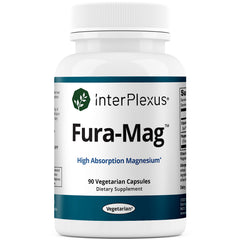
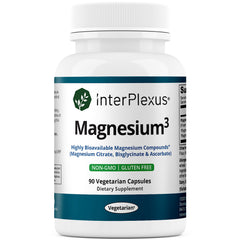
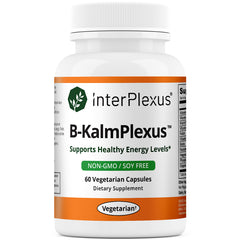
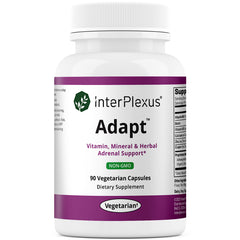
Leave a comment